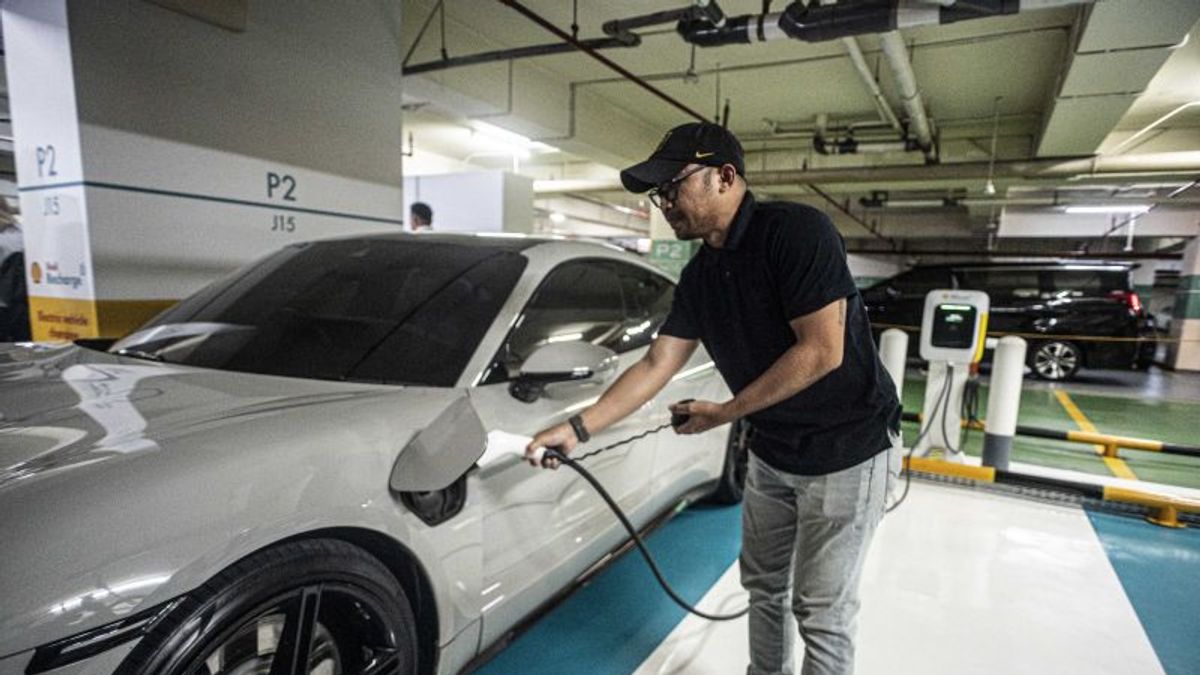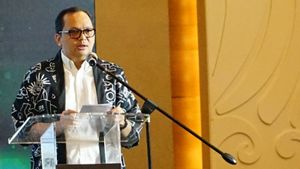The Indonesian Ombudsman gave a number of suggestions regarding the acceleration of the use of battery-based electric vehicles and efforts to overcome the impact of using electric vehicles.
"First, expanding and increasing socialization and education activities regarding policies, regulations, mechanisms, procedures, and their impact on economic growth and environmental conservation related to the massive use of battery-based electric vehicles to the public," said RI Ombudsman Member Hery Susanto as quoted by ANTARA, Tuesday, February 14.
Second, he added, regulations or policies regarding the acceleration of the use of battery-based electric motorized vehicles should be supported by the regulation of the use of these vehicles in other sectors.
"Such as tourism areas, educational center areas, airports, public transportation, and the private sector. This is necessary to expand the program in the midst of people's lives," he explained.
Third, he continued, it is necessary to encourage and supervise local governments to make regulations that support the accelerated use of battery-based electric motorized vehicles.
"Fourth, making implementing instructions or technical instructions involving related ministries and institutions regarding the conversion of fossil vehicles to electric vehicles, and the possibility of vehicles with hybrid systems," said Hery.
Then, he said there needed to be an expansion of the implementation instructions and technical instructions for the widespread use of electric vehicles to the public.
Fifth, it is also necessary to broadly and transparently disseminate policies and socialization regarding the provision of incentives, both fiscal and non-fiscal, as stipulated in Presidential Regulation Number 55 of 2019 concerning the Acceleration of the Battery Electric Vehicle Program (Battery Electric Vehicle) for Road Transportation.
"As for other forms of incentives that are seen as able to stimulate the development of the industry and the use of battery-based electric motorized vehicles," he added.
The sixth suggestion, Herry said it was necessary to increase and expand the deployment of Public Electric Vehicle Charging Stations (SPKLU) and Public Electric Vehicle Battery Exchange Stations (SPBKLU), by taking into account supporting facilities, such as use instructions, responsive call centers if there are problems from customers, comfortable waiting places, and maintenance and repair standards if there is damage.
"The seventh, increasing activities or programs to increase human resource capacity, such as certified education and training, related to battery-based electric motorized vehicles, and helping facilitate licensing for electric vehicle workshops," he explained.
Meanwhile, regarding battery waste, the Ombudsman advises the Government to open widely and encourage investors in the field of managing and recycling electric vehicle battery waste.
"The government can encourage the electric vehicle industry to pay attention to battery waste problems and so that the electric vehicle industry can contribute to managing or recycling the waste of batteries produced," he said.
Regulational policies, in the form of detailed and comprehensive regulations, need to be made and implemented as standard guidelines in managing or recycling electricity battery waste.
"This includes assigning duties and responsibilities to the relevant ministries and agencies, especially from the supervisory side both at the central and regional levels," said Hery Susanto.
The English, Chinese, Japanese, Arabic, and French versions are automatically generated by the AI. So there may still be inaccuracies in translating, please always see Indonesian as our main language. (system supported by DigitalSiber.id)









